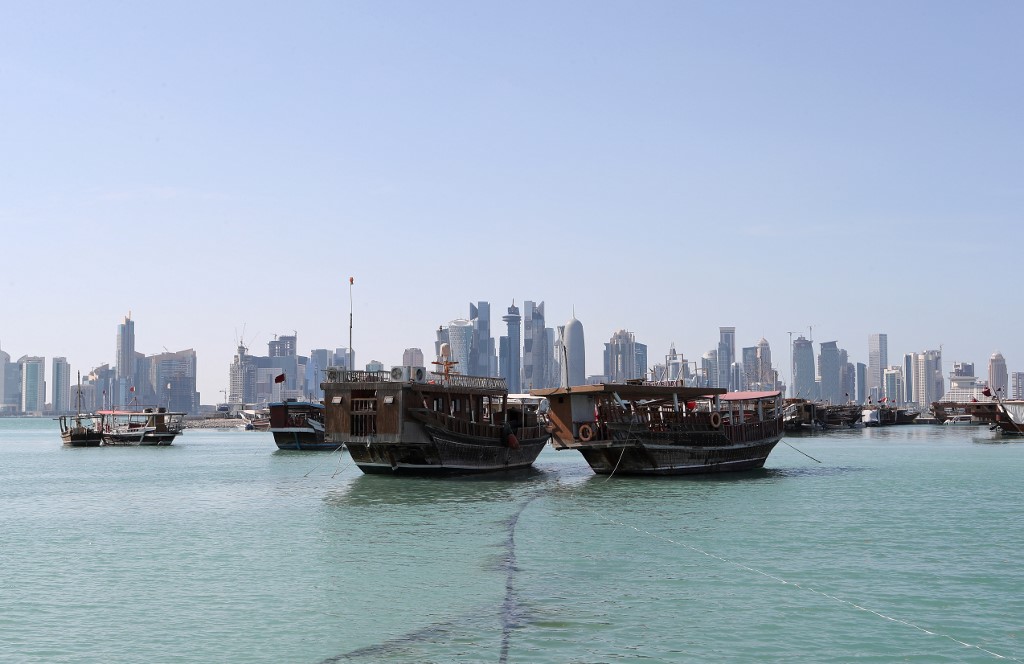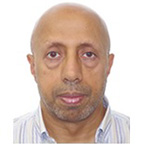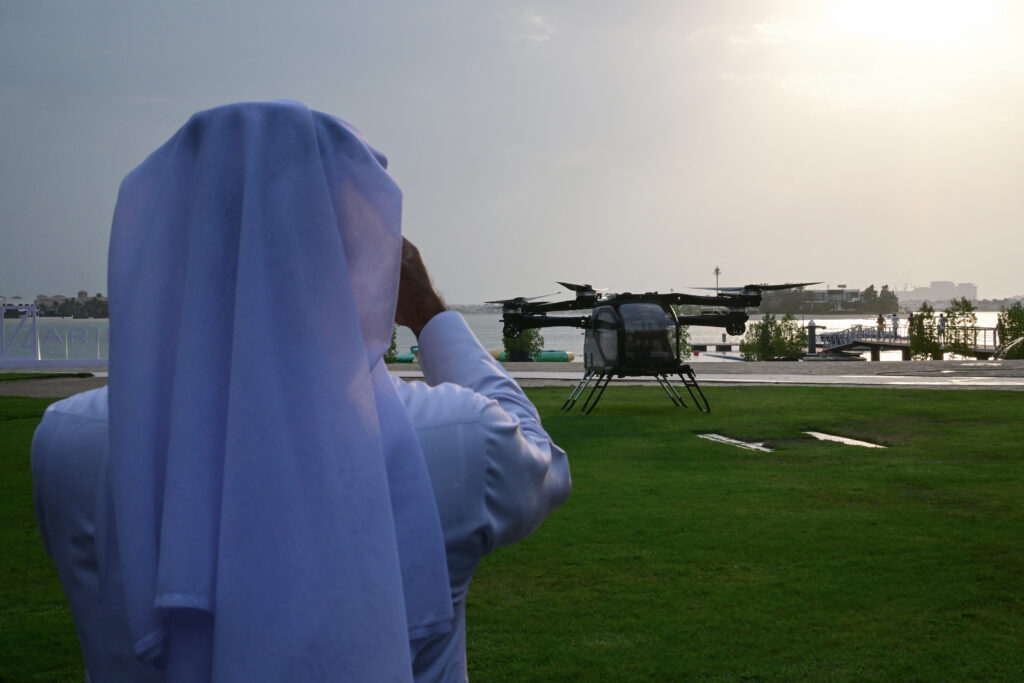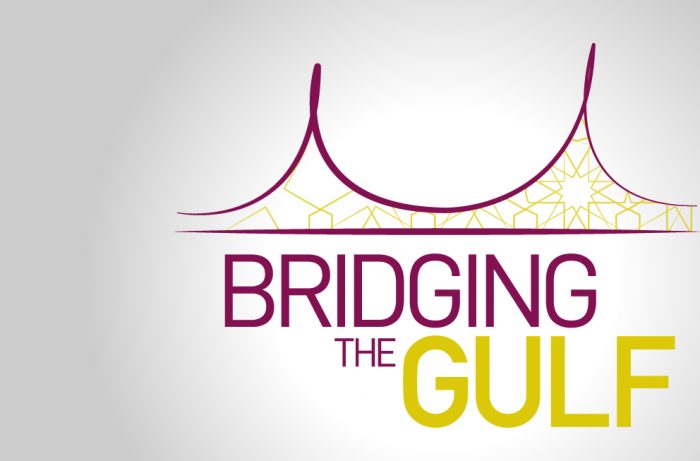
- 08 Jul 2020
Qatar Blockade: Is A Solution At Hand?
Abstract
Three years since Qatar was blockaded by its neighbours, the tiny emirate has continued to hold its own. Despite periodic attempts at resolving the deepest rift in the Gulf, including a much-hyped recent effort brokered by Kuwait, hopes have proven misplaced. Will World Cup 2022, rising US–Iran tensions and the Saudi Crown Prince’s need for a “win” brighten prospects for a solution? Dr Kristian Ulrichsen, author of Qatar and the Gulf Crisis, which examined how the Gulf state tackled the crisis, will answer these and other questions.
MEI Research Fellow Clemens Chay will be the moderator for this session and MEI Visiting Research Professor Abdullah Baabood will be the discussant.
Join us for this public talk on 8 July, 4.00pm to 5.30pm (SGT), which will be conducted online via Zoom. All are welcome to participate. An e-invite will be sent to you near the event date.
This event is free, however, registration is compulsory.
Listen to the full event here:
Watch the full event here:
Event Summary
By Tan Yang Long
Intern, Middle East Institute, National University of Singapore
This book discussion, conducted in a question(s) and answer(s) format, covered Dr Ulrichsen’s book entitled Qatar and the Gulf Crisis. The topics discussed include the origins of the crisis; the impact of the crisis on the Gulf Cooperation Council (GCC); Qatar’s response and what small states like Singapore can learn from it; the 13 demands by the quartet of Egypt, Saudi Arabia, the United Arab Emirates (UAE) and Bahrain; the geopolitical implications of the crisis and the future of the region’s security architecture.
Origins of the Crisis
Kicking off the talk, Dr Ulrichsen said the rift in the Gulf became clear from as early as 2014 when Bahrain, Saudi Arabia, Egypt and UAE withdrew their ambassadors in Qatar for nine months. After the 2014 dispute and by 2016, it appeared that Qatar had repaired some of its relationships with its neighbours. For example, Qatar sent troops to the Saudi border in 2015 to take part in the coalition in Yemen. In December 2016, King Salman went on a state visit to Doha. The Qataris and the Emiratis started to have meetings about their homeland security interests. The prime minister and crown prince of Bahrain were also in Doha to discuss potential co-operation.
It was thus important to look at what had changed from the end of 2016 to June 2017. A key issue was that of the abduction of a group of Qatari hunters, which including members of the Qatari royal family, in Iraq in 2015. The hostages were released in 2017 after Qatar paid a ransom to Iraq, or to different groups involved (depending on which narrative one refers to). This became a convenient smoking gun used by the quartet of states to accuse Qatar of destabilising the region.
The main reason for the timing of the conflict is the coming into power of the Trump administration. The administration made it clear that the old order no longer applied to them as they were prepared to ignore traditional checks and balances. For example, the Muslim travel ban was applied in the first week of the administration. It was likely that the Saudis and Emiratis saw this as a once in a lifetime opportunity to punish Qatar, as they assessed that the Trump administration would not push back even if they exercised pressure on another US partner. This was not possible with the previous Obama administration, during which the Saudis and Emiratis were constrained because they knew President Barack Obama would not be as amenable to such action.
What intrigued Dr Ulrichsen the most was that this was the first manifestation of an international crisis in the alternative facts era, where fact and fiction are harder to distinguish. In 2017, the blockade (or embargo, or boycott — the dispute over these terms contributes to the polarisation of the conflict) started after a hack on Qatar’s news agencies. The hack entailed implanting a news story that reflected badly on both the emir of Qatar and Qatar’s foreign policy. The news story was picked up and disseminated almost instantaneously by various regional and American media outlets to shape an alternative and negative narrative of Qatar.
Dr Ulrichsen added that the severity of this crisis was different from previous ones as it was not just a crisis between elites and leaders. The restrictions on travel and the fact that families could not visit one another had created long-lasting bitterness and complicated any possible resolution. This crisis had also caused a lot of hostility on social media platforms because of the directness of its impact.
Impact of the Crisis on the GCC
The crisis has hurt the Gulf Cooperation Council (GCC), as one of the key characteristics of the GCC was the flexibility to consider different points of view, said Dr Ulrichsen. This ability by the GCC to help Gulf countries stablise and integrate their economies in the face of crises and ability to debate issues was what helped the Gulf states to become a significant regional actor, said Dr Baabood, who also asked why the crisis was not resolved by the GCC and where the grouping was headed.
Dr Ulrichsen said in this crisis, the GCC dispute resolution mechanism was not utilised at all nor did the GCC make any attempt to mediate. In fact, the emir of Kuwait engaged in diplomacy personally to prevent it from escalating further. When the emir met Donald Trump eventually, he publicly said that his mediation had prevented military action. This comment raised eyebrows because the emir of Kuwait was known as someone who chose his words carefully and would not have said something like that unless there was a real possibility of military conflict.
The GCC was very fortunate because in the first two years after the crisis, the rotating heads of the organisation came from Kuwait and then Oman. This gave a safe space for meetings of commerce and industry to continue in Kuwait City and Muscat. The 2017 and 2018 summits continued to take place, albeit ending abruptly in 2017. The summits were testament to the wishes of the emir of Kuwait and the respect for him that the different Gulf states had. However, with the death of Sultan Qaboos bin Said, the region might be in new territory after the emir of Kuwait dies, as that would signal the demise of a generation of consensus builders in the Gulf and the rise of a newer generation of more nationalistic and exclusionary leaders.
Finally, in response to the question on the relevance of the GCC, Dr Ulrichsen said the GCC cannot continue in its current form. Presently, it has a new Kuwaiti secretary-general and not one representative of the quartet. It remains to be seen if the GCC will find a way of going forward collectively, or if there will be six different country-level responses instead. However, as the new secretary-general took over in February 2020 and had to face Covid-19 within weeks, he has not had much time in the office to deal with the blockade issue.
Evaluating Qatar’s Response and What Small States Like Singapore Can Learn
Dr Ulrichsen said resilience was critical to the Qatari response. Qatar had started preparing for such a scenario since the 2014 crisis. Part of that preparation included infrastructure: in 2016, the Qataris opened Hamad port, a mega port that could accept trade directly from around the world, instead of needing to be shipped via Dubai or Oman using smaller ships. Qatar also sought to secure alternative trade routes to minimise potential disruptions to trade.
Before the blockade in 2017, Qatar had a two-week warning period as the hack had happened on 23 May, followed by a lot of negativity in the regional and American media about them. This two-week period allowed Qatar to prepare even further through activities like market scanning exercises on their supply chains. When the blockade did happen, they were able to, within two days, put in place alternative supply routes and within another two days, overcome the blockade. Dr Ulrichsen pointed out that one of the failures of the blockade was that it was targeting a state with significant reserves and the capacity to adapt. In the first few months since the blockade, the Qataris spent US$30 billion to 40 billion to allow people to continue their lives as before.
Dr Ulrichsen said the Qatari response involved the use of ”smart power” and “strategic partnerships”. This meant strategically deploying their investments and making deliberate agreements with other states, such as a memorandum of understanding with the US on terrorism finance. These proactive steps were appreciated by many western capitals. Very few states accepted the narrative that the quartet pushed forward in June 2017.
Speaking in greater detail the “rule of law” approach mentioned in his book, Dr Ulrichsen said it referred to how Qatar brought the issues raised by the quartet to different international actors to seek a resolution. This allowed Qatar to reframe the narrative from one where they were destabilising the region to one where they were reasonable. They won the battle of ideas and it remains evident today, given that many in the World Trade Organisation are questioning why the dispute is still continuing.
Other Qatari actions have also helped. For example, Qatar allowed the natural gas pipeline from Qatar to the UAE to continue in June 2017. If Qatar had stopped the flow of natural gas, it would have been seen as a punishment for ordinary people in the UAE during the peak of the hot summer, when air conditioning was most needed. This would have undermined Qatar’s attempts to reclaim the narrative. Dr Ulrichsen also said unlike the unwillingness of Qatari officials to explain their involvement in the Arab spring in 2011 and 2012, which caused public misunderstandings and fueled tensions, post 2014, there was more awareness in the Qatar government about the important of public diplomacy and the need to explain their actions to allies, partners and publics. Hence, it was easier to get access to Qatari officials when writing his book.
He added that the blockade did not succeed because the attempts to isolate Qatar received little international support. Qatar remained open to many countries around the world, and even countries which initially supported the blockade like Jordan had re-upgraded their ties with Qatar. The already limited support for the quartet had fallen away. The Qataris had managed to reframe the narrative of themselves from one of destabilisation to one that respects international resolution. The quartet had also unintentionally succeeded in pushing the Qataris to cooperate more closely with the US and with other countries on security.
Responding to another question on what other small states like Singapore can learn from the blockade, Dr Ulrichsen suggested that these small states surrounded by conventionally more powerful and potentially aggressive neighbours should create tangible, working partnerships with countries around the world. These additional layers of security, economic and political links will ensure that if and when something happens, small states will have partners around the world that recognise the value of coming to their assistance. Qatar had been striving to move away from Saudi Arabia’s shadow since the 1990s. The key lesson is that if a small state can remain a critical part of an international framework of trade, of commerce, of economic and political linkages, other countries will more likely assist them if anything happens to them.
The 13 Demands by the Quartet
Responding to Dr Baabood’s question on whether the 13 demands were fashioned to make it impossible for Qatar, Dr Ulrichsen said they were probably drawn up in haste. They came just two days after the US State Department made it clear that they wanted the crisis resolved and would not take sides. This was after President Trump took sides at the start of the crisis. The 13 demands were framed in such a way that was impossible for any sovereign state to accede to. It was likely designed to be rejected and therefore be used to legitimise the continuation of the quartet’s actions.
The 13 demands made Kuwait and Oman wary of their Gulf neighbours. For example, the first demand of the 13 was that Qatar had to cease relations with Iran. Kuwait and Oman were, at that point, trying to form working relationships with Iran. Using Iran as an issue against Qatar reflected how the Saudis and Emiratis were willing to create tensions more widely in the region than just between Qatar and its neighbouring states. They were willing to exert their desires regarding what the Gulf states could or could not do, creating a fear in Oman and Kuwait that they could be next.
Asked about the inclusion of Al-Jazeera in the 13 demands, Dr Ulrichsen said that demand harmed the quartet’s case. It allowed the issue to become a freedom of speech issue. Western media like The New York Times condemned the move as they saw it as further attempts to silence freedom of media in the region. Dr Ulrichsen believed that for a resolution to happen, a larger regional media framework agreement is needed that covers other media outlets as well. Such a framework should cover the relationship between the various media outlets and states. However, such an agreement that commits all member states to action can be bitterly polarizing if it breaks down, such as the 2014 Riyadh agreement.
Geopolitical Implications of the Crisis
The Qataris had hoped to engage Saudi Arabia bilaterally rather than the quartet as a whole and split the Saudis from the UAE but that ultimately did not happen. Right after the attack on Saudi Arabia in September 2019, there was a commencement of dialogue between Saudi Arabia and Qatar, where Qatar took part in a meeting of chiefs of staff in Riyadh. During the meeting, the Qataris signed the reaffirmation of collective security. While this gesture was appreciated, it was ultimately not helpful.
From a Riyadh and Abu Dhabi point of view, Qatar was not an issue worth testing their bonds. Other issues like Yemen were going to be more difficult to resolve. A split over Yemen is more likely than a split over the blockade issue. Yemen is a quagmire and a war that the Saudis want to end. The Saudis want to withdraw in a way that does not look like a defeat, but rather portrayed as a mission accomplished in terms of addressing border security and keeping the presence of the presence minimised. The Saudis want to be part of the process of what happens next in Yemen.
Dr Ulrichsen added that the UAE is waiting for an opportunity to push Qatar and other countries like Kuwait and Oman harder. In July 2013, within the weeks after a new Qatari emir came into power, the UAE upped its pressure on Qatar, likely as a way of testing the new emir. With Oman drawing closer to its succession, and the emir of Kuwait turning 91, they are concerned that this might happen to them too. The recent UAE–Kuwait twitter issue reflected how the blockade might not be a one-off event, but that the UAE and Saudi Arabia wanted Qatar, Kuwait and Oman to follow their approach on issues that they historically had some autonomy over.
The crisis had pushed Qatar closer to Iran, such as how Qatar started using Iranian airspace. This had caused frustration to the US as it wanted its allies in the Gulf region to be aligned with it while it executed its maximum pressure campaign on Iran. Subsequent mediation efforts by the US had failed, and there was a sense within State Department that the crisis had gone on for far too long.
The crisis is on-going because no party feels that it has to make the first move. The crisis had cost the Qataris a lot. For example, Qatar Airways reported losses in 2018 and 2019 after years of profits. The Emiratis and Saudis are not spared as well. For example, Dubai had been hit as there are a lot of historic and commercial links between Qatar and Dubai. In addition, Dubai’s reputation of being a place where one can do business without geopolitics interfering has been hit. Policymaking is also concentrated in individual leaders, which makes the situation more personal and more difficult to come to an institutional agreement.
On the topic of the ability of other states like Kuwait and Oman to mediate, Dr Ulrichsen said while Kuwait remains engaged, the Covid-19 pandemic meant the 91-year old emir of Kuwait needed to be isolated and kept safe and could not be personally involved. Thus, the mediation presently is less visible and direct. The US had also tried to flit in and out at different points in time to be that powerful third-party mediator. Going forward, the relationship of the Gulf states and the US is such that with a potential Joe Biden presidency, there could be more moves to a deal, as the quartet might feel that any hopes of success is gone with the end of the Trump administration. However, it is likely that as long as Abu Dhabi wants this crisis to continue, it will continue as a lot of the animosity began in Abu Dhabi. Also, as long as the Saudi Arabia–UAE relationship remains strong, the situation will likely remain.
The crisis has to end at some point, but Dr Ulrichsen thought that it would more likely become background noise with a gradual fading away of restrictions. While President Trump tried to mediate in 2018, his attempt did not work because having such a high-profile event would have required these leaders to make concessions, which was unthinkable. As things stand, Qatar wants an acknowledgement and apology that what happened was wrong, and it wants some credible assurance that such a blockade will not happen again. On the other hand, the quartet do not think Qatar is deserving of having the blockade end.
The Future of the Region’s Security Architecture
President Trump’s initial decision to take sides shocked the Qataris and called into question the security guarantee that they had always thought the US would provide since the 1990 Kuwait invasion, said Dr Ulrichsen. The Saudi and Emiratis had a similar moment of questioning two years later in May and June 2019, and September 2019, when there was no overt US response to the attacks on their shipping lanes and on Aramco.
Going forward, it is likely that more participants will be added to the overall Gulf security architecture. The Gulf countries collectively feel that they cannot rely on the US alone. By adding participants like Russia, China, India or Turkey to the Gulf security architecture, the region is able to internationalise its security networks and bring in other parties who will not take sides on the divisive issues. This will provide a better balance of powers given that for the past 40 years, the US had been a very important security actor in the Gulf, and they had consistently taken sides. Even if President Trump wins the election again, there will always be a nagging feeling about whether the US will honour its partnerships. Ironically, this blockade could mark the beginnings of renewed and inclusive attempts to work with new partners on security on a wider regional level.
Image caption: Boats sitting in the port along the corniche in Doha on 5 June 2017. Photo by STR / AFP
About the Speakers

Fellow for the Middle East
Rice University’s Baker Institute for Public Policy
Dr Kristian Coates Ulrichsen is a Baker Institute fellow for the Middle East. Working across the disciplines of political science, international relations and international political economy, his research examines the changing position of Persian Gulf states in the global order, as well as the emergence of longer-term, non-military challenges to regional security. Previously, he worked as senior Gulf analyst at the Gulf Center for Strategic Studies between 2006 and 2008, and as co-director of the Kuwait Program on Development, Governance and Globalization in the Gulf States at the London School of Economics and Politics from 2008 until 2013.
Dr Ulrichsen has published extensively on the Gulf. His books include Insecure Gulf: the End of Certainty and the Transition to the Post-Oil Era (Columbia University Press, 2011) and Qatar and the Arab Spring (Oxford University Press, 2014). In addition, he is the author of The Logistics and Politics of the British Campaigns in the Middle East, 1914-22 (Palgrave Macmillan, 2011) and The First World War in the Middle East (Hurst & Co, 2014). His most recent books include The Gulf States in International Political Economy (Palgrave Macmillan, 2015) and The United Arab Emirates: Power, Politics, and Policymaking (Routledge, 2016). Dr Ulrichsen’s articles have appeared in numerous academic journals, including Global Policy and the Journal of Arabian Studies, and he consults regularly on Gulf issues for Oxford Analytica and the Norwegian Peacebuilding Resource Center. He also writes regularly for the Economist Intelligence Unit, Open Democracy, and Foreign Policy, and authors a monthly column for Gulf Business News and Analysis.
Dr Ulrichsen holds a doctorate in history from the University of Cambridge.

Dr Ba Abood is an Omani academic and researcher, and the former director of the Centre for Gulf Studies at Qatar University. He holds a PhD in international relations from the University of Cambridge, a master’s degree in international relations from the University of Kent and an MBA from Strayer College, USA.
His research interests are international relations; the international political economy; Gulf affairs; and economic, social and political development in the GCC countries and their foreign relations. Baabood has taught and conducted research at several universities and institutions in Europe, and has published numerous books, articles and conference papers.

Dr Clemens Chay is a research fellow at the Middle East Institute, NUS. He holds a PhD from Durham University, where he was formerly the Al-Sabah fellow. His research focuses on the history and politics of the Gulf states, with a particular emphasis on Kuwait. His most recent publication is featured in The Routledge Handbook of Persian Gulf Politics (2020), entitled “Parliamentary Politics in Kuwait”. He also wrote “The Dīwaniyya Tradition in Modern Kuwait: An Interlinked Space and Practice”, appearing in the Journal of Arabian Studies.



